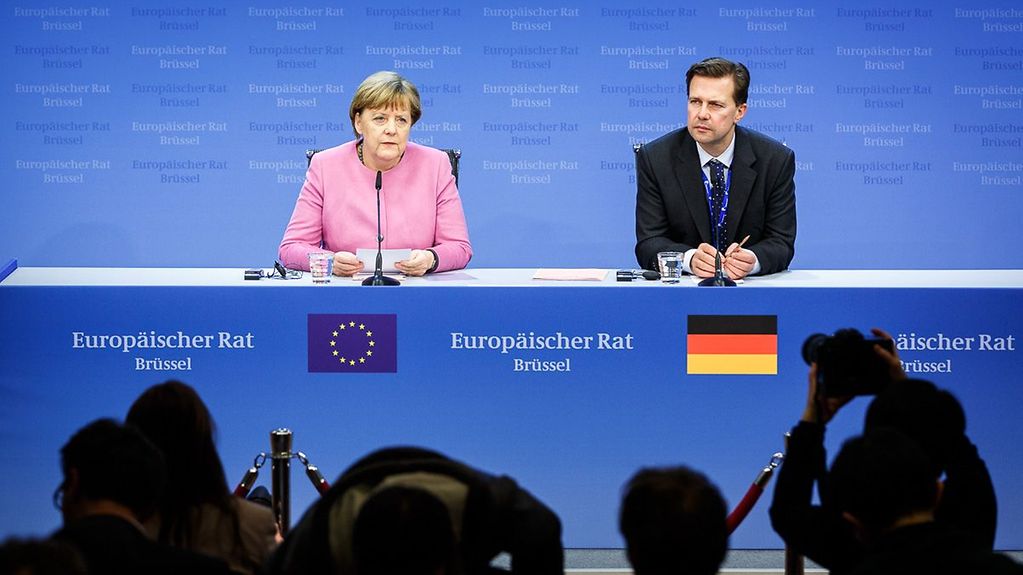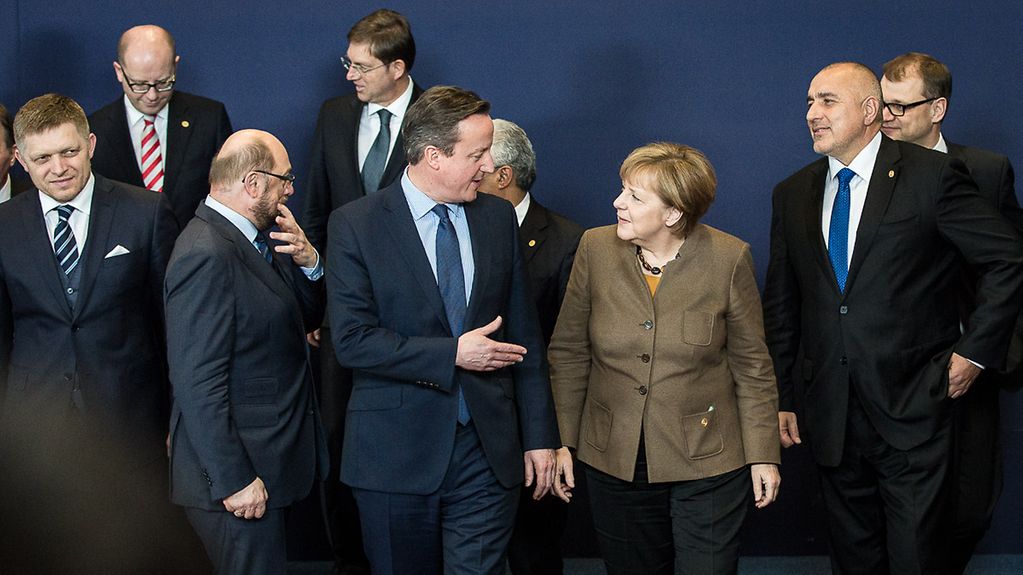European Council meeting in Brussels
The European Council has decided on extensive new regulations in order to keep the United Kingdom in the European Union. The Chancellor has welcomed the agreement. Negotiations focused at all times on unity and identifying common ground among all 28 member states.
4 min reading time

Child benefit regulations could be applied in Germany too, says Chancellor
Photo: Bundesregierung/Denzel
"We have achieved an agreement on the future relations of the United Kingdom with the European Union. The entire discussion process was marked by the will to come to an agreement," said the Chancellor following the European Council meeting which went on late into the night.
She would now hope that "David Cameron can go to the British people with this package and convince them that EU membership is extremely valuable for all of us, especially at this time, when we are living in a very turbulent and insecure world."
A sensible compromise
Those EU member states which would like to move closer together, such as the euro-zone states, will still be able to do so. The fundamental European principles, such as freedom of movement, were not called into question, reported Angela Merkel.
"We were absolutely required to demonstrate our will to compromise. But I believe that our goal of keeping the UK in the EU justified the compromise. It is, however, fair to say, that it was not an easy decision for any of us."

The Chancellor deep in discussion with David Cameron - she is working to keep the UK in the European Union
Photo: Bundesregierung/Denzel
Making Europe more competitive
In its Conclusions, the European Council adopted various statements that take into account the reforms that the UK wished to see. These include a new regulation of the UK’s place within the EU and specific provisions regarding the banking union and further integration of the euro zone.
Further agreements were also reached to make the EU more competitive. As the Chancellor stressed, Germany in particular is also very interested in enhancing competitiveness.
Reducing welfare benefits to protect social security systems
Welfare benefits are to be re-regulated. EU member states paying child benefit for children living in other EU member states, for instance, will be able to bring the payments into line with the actual costs of living in the country in which the children live. Until 2020 this is to apply only to new applications for child benefit, according to current plans. After this date, member states can apply the regulation to all payments. Germany too can benefit from this, pointed out the Chancellor. "The question of paying child benefit for children who do not live in Germany is an issue with which I am very familiar from discussions within Germany."
States suffering an unusually strong influx of immigrants will also be able to apply an "emergency brake" on the granting of further social welfare benefits, meaning that citizens of other EU member states entering the country would not be entitled to receive social assistance for a period of up to four years. The precondition is that the member state did not make use of the transitional regulations for up to seven years in the wake of EU enlargement. The United Kingdom would be able to use this mechanism for a period of seven years. Angela Merkel commented, "The question of abuse of the social welfare system is of concern to us in Germany too."
National parliaments to be given a greater say
The role of national parliaments is to be strengthened. They are to be accorded a sort of "red card", which they can use to stop EU projects. This will, however, require a minimum of 16 parliaments to lodge an objection.
In particular, the principle of subsidiarity, which has rarely been applied in recent years, is to be accorded greater importance. Subsidiarity means that only those matters ought to be regulated at European level, that can be better regulated at that level than by the member states themselves. An ever closer union will not force any member state to participate in greater political integration. As the Conclusions say, "different paths of integration" are possible for different member states.
Humanitarian aid for people in Aleppo
Other items on the agenda included developments in Syria and Libya and the EU’s relations with Turkey. The Chancellor once again made it clear that humanitarian commitments made to aid the people in Syria must be translated into action. "We have made it quite clear that it is very important to us to make it possible to get humanitarian aid into Aleppo. Thankfully it has proved possible to get humanitarian aid through to people in some areas."
The meeting proposed that negotiations identify zones in which the civilian population is safe. "This applies, for instance, to the zone along the Turkish border, around the town of A’zaz, which has been very important this week," said the Chancellor. She expressed her hope that a government of national unity can soon be formed in Libya and that this will make it easier to defend Libya again.
Common asylum and refugee policy
The heads of state and government discussed a common asylum and refugee policy on the first day of their meeting, and agreed to hold a special summit meeting with Turkey at the start of March in view of the still high numbers of refugees reaching the EU. There was a consensus that common answers must be found to this huge challenge to Europe.